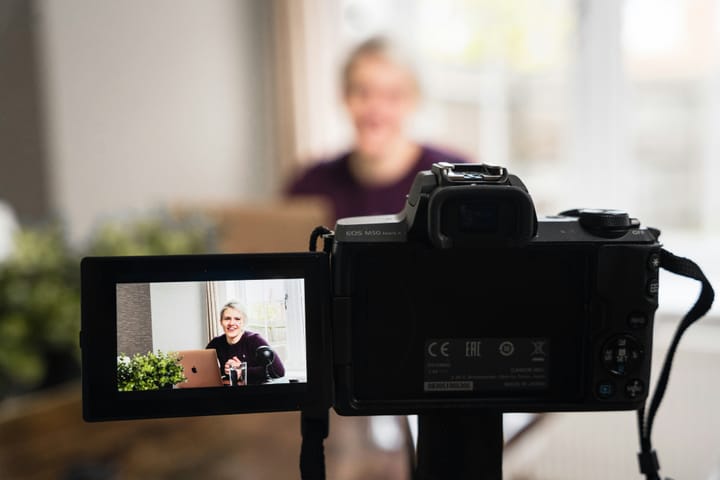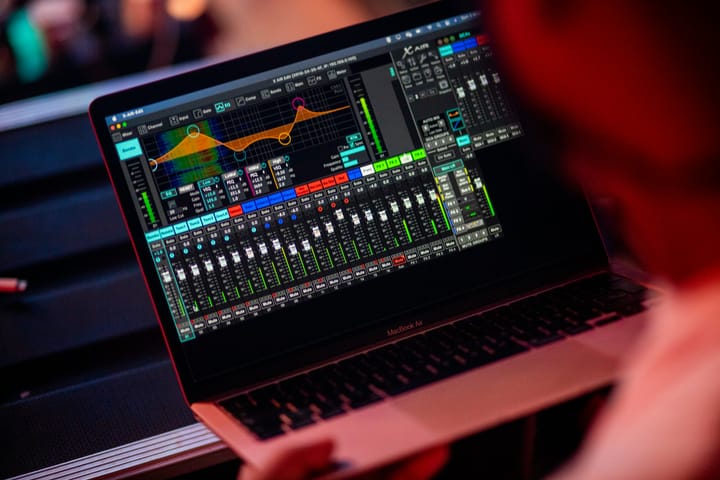Podcasting Unplugged: Your Ultimate Step-by-Step Blueprint
Are you planning to start your podcast?


Key Takeaways:
- Diving into podcasting begins with defining your niche and target audience - clarity here is your first step towards success.
- Investing in quality equipment is non-negotiable; even a simple setup can elevate your podcast's professionalism.
- Leverage platforms like Anchor, GarageBand, and Audacity not just for recording, but for editing, mixing, and enriching your podcast episodes.
- Promotion is half the battle won; use social media, SEO, and podcast directories to broaden your reach.
Are you planning to start your podcast? Are you seeking a community that will relate to you, hoping to grow your business, or looking to maximize your media presence? You might be one of the people who desire to take their first step on their journey to podcasting; however, you have to consider important factors to make it work.
Podcasting has become popular, giving a platform for voices from all phases of life to share their stories, expertise, and passions. Whether you're a seasoned speaker or new to the digital stage, creating a podcast can seem overwhelming. Yet, with the right guidance, you can navigate the podcasting journey with ease.
An interesting fact about podcasting is its intimate nature; listeners often feel a personal connection to their favorite hosts, just like sitting in on a conversation with friends. This unique characteristic can significantly enhance listener loyalty and engagement. Adding value to our listeners is one of the important goals a podcaster must have in mind. This is the reason why you need to have a clear vision of “why do I want to start my podcast?”
Here's your comprehensive guide to starting a podcast that connects and captivates.
1. Identify Your Niche
Begin by pinpointing your podcast's focus. What subjects are you passionate about? What expertise can you offer? Understanding your niche not only guides your content direction but also helps in identifying your target audience. Your niche is the compass that guides your content creation process and is determined by the value of your content. It might take a lot of conceptualization and research, but the easiest way to choose your niche is to consider your interests, expertise, or what you are most passionate about. Writing down your ideas will help you see a big picture of the niche you want to focus on.
2. Choose Your Format
Next, consider the format of your podcast. Your format on the podcast will bring structure to every episode of content you wanted to make. Make sure that your format is aligned to the niche you’ll be focusing on. Will you go solo, co-host, or feature guests? Decide on the length of your episodes and how frequently you'll publish. Consistency is key, so choose a schedule you can commit to. A consistent format and schedule build listener habits and expectations.
3. Get the Right Equipment
While you don't need a professional studio, quality audio equipment is crucial. A reliable microphone, headphones, and a quiet recording space can significantly impact your sound quality. Clear, crisp audio can make or break your podcast's professionalism. If you are planning to take your equipment to another level, there are popular microphone brands that you can use such as Shure, Rode, Apogee.
4. Recording Software
For recording and editing, there are several user-friendly options. Anchor is a fantastic all-in-one platform that simplifies recording, editing, and distributing your podcast. GarageBand is ideal for Mac users, offering a range of editing tools, while Audacity is a free, open-source software compatible with both Windows and Mac. The right software can transform raw audio into a polished, engaging episode.
5. Craft Compelling Content
Remember, Content is everything. Plan your episodes, research your topics, and prepare scripts or outlines to stay on track. Engaging and valuable episodes will keep your audience coming back. Your content is the heartbeat of your podcast; make it resonate.
6. Editing
Editing isn't just about removing mistakes; it's an opportunity to enhance your podcast's flow and clarity. Use your software to cut unnecessary parts, add music, and ensure sound levels are consistent throughout. Thoughtful editing can elevate your podcast from good to great. Audacity and Audio are two recommended softwares that you can use for editing your episodes.
7. Publish and Promote
Once your episode is polished, it's time to publish. Hosting platforms like Anchor can distribute your podcast to major directories such as Spotify, Apple Podcasts, and Google Podcasts. Additionally, your title and description provide an opportunity to entice your audience to click and listen to your episode. Promotion is crucial; maximize social media, SEO, and your personal network to spread the word. Your promotion strategy is important for growing your audience. Without promotion, you'll find it hard to inform your audience that you've published your podcast or a new episode.
FAQ
Q: How much does it cost to start a podcast?
A: Starting a podcast can be relatively low-cost, but you need to consider different factors when beginning your journey. The primary investment is in a good microphone and headphones, which can range from $50 to several hundred dollars, depending on quality. Secondly, recording and editing software, although there are free options available, the ones that are commonly used by podcasters require a subscription or are paid software.
Q: How can I monetize my podcast?
A: There are several ways to monetize, including sponsorships, affiliate marketing, selling merchandise, or offering premium content for a fee.
Q: How long should podcast episodes be?
A: There's no one-size-fits-all answer; it depends on your content and audience. However, most podcasts range from 20 to 60 minutes. Keep your episodes long enough to deliver value but short enough to maintain engagement.
Starting your podcasting journey is an exciting venture that blends creativity with technical skill. By following this step-by-step guide, you're well on your way to creating a podcast that not only shares your unique voice but captivates and grows your audience. Remember, the world of podcasting is huge; there's a place for every voice, including yours.


